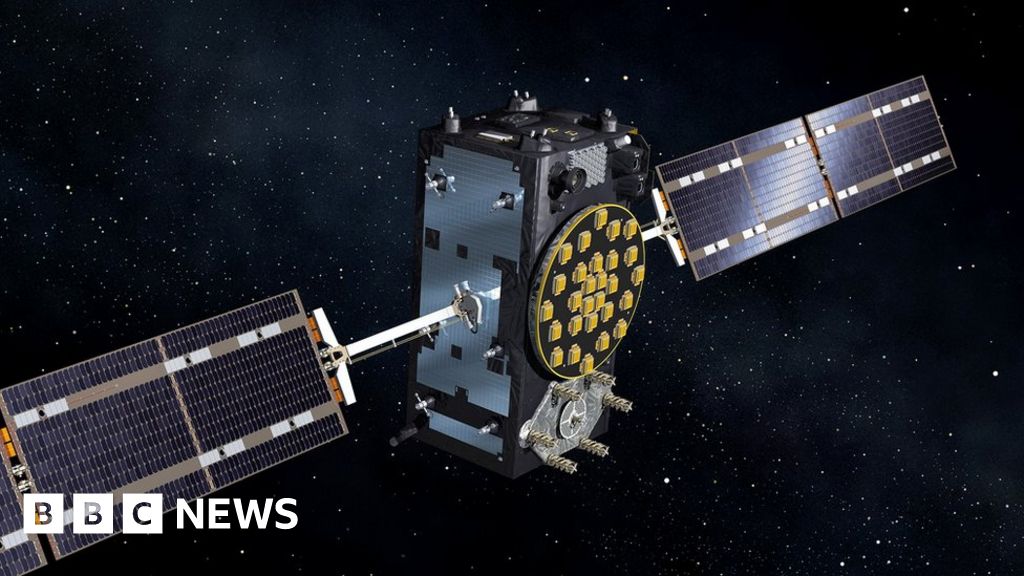Brexit To 'force Work On Galileo Sat-nav System Out Of UK'

 Image copyright
ESA
Image copyright
ESA
An executive at Airbus says that work on the Galileo sat-nav system will have to be moved out of the UK if the company wins a key contract.
Galileo has become something of a political football in Brexit talks.
The EU says it would have to stop the UK from accessing the encrypted part of the network when it leaves next year.
Colin Paynter, the company's UK managing director, said that EU rules required Airbus to transfer all work to its factories in France and Germany.
Mr Paynter was speaking at a Commons committee hearing on Exiting the European Union on Wednesday.
The system was conceived to give Europe its own satellite-navigation capability - independent of US GPS - for use in positioning and timing applications, such as in finance, telecommunications, the utilities, and to support the emergency services and the military.
The UK has played a key role in the programme, and Airbus is currently bidding for the renewal of a contract covering the Galileo ground control segment - potentially worth about 200 million euros. This work is currently run out of Portsmouth.
About 100 people are currently employed by Airbus on these services. Most would likely have to move to where the work is, but it's possible some could be reallocated to other projects.
"One of the conditions in that bid documentation from the European Space Agency is that all work has to be led by an EU-based company by March '19," Mr Paynter told the committee.
"Effectively that means that for Airbus to bid and win that work, we will effectively novate (move) all of the work from the UK to our factories in France and Germany on day one of that contract."
Asked by Committee chair Hilary Benn MP whether the Brexit transition period could mitigate this condition, Mr Paynter replied: "No, because this area of Galileo - and many areas of Galileo - is classed as a security-sensitive procurement. I believe that isn't covered in the transitional arrangements."
The UK's access to Galileo's encrypted service, which would be required for military and security uses of the system, would be blocked by the EU after Brexit.
This warning prompted the Business Secretary Greg Clark to announce that the government would look into options for developing its own satellite-navigation system.
Asked by Labour MP Pat McFadden whether developing a British sat-nav system was feasible, Mr Paynter replied: "I think the key thing for me is, it's not up to industry to determine whether there's a requirement or need for an independent UK system... I would say that, in terms of feasibility, I think after such a long and deep involvement with the Galileo programme as UK industry, we have all the skills and capabilities needed to support that programme should it come out."
But Dr Bleddyn Bowen, who researches space and defence at the University of Leicester, told the committee: "Technically, yes, it's feasible - Britain could do it. But it will cost a lot of money and it will run over budget."
He added: "You need to look at the other GNSSs - global navigation satellite systems - that have been built. The Americans are currently building their third generation of GPS satellites, which have become notorious for cost overruns and delays because they're encountering new technological problems as they improve the system.
"Britain has just built the satellites for the Galileo system. That means Britain has to build a new satellite-navigation system - not the same one. That will mean new technological developments and innovations as well, which will cause delays."
According to one estimate, the UK has paid about 1.4 billion euros into the 12-14 billion-euro Galileo programme since 2005.
Estimates for the cost of an indigenous system in the range of £3-5bn were probably right, Mr Paynter said. That was money Dr Bowen told the committee could be better spent elsewhere, filling missing capability gaps in the British space programme.
Follow Paul on Twitter.
From Chip War To Cloud War: The Next Frontier In Global Tech Competition
The global chip war, characterized by intense competition among nations and corporations for supremacy in semiconductor ... Read more
The High Stakes Of Tech Regulation: Security Risks And Market Dynamics
The influence of tech giants in the global economy continues to grow, raising crucial questions about how to balance sec... Read more
The Tyranny Of Instagram Interiors: Why It's Time To Break Free From Algorithm-Driven Aesthetics
Instagram has become a dominant force in shaping interior design trends, offering a seemingly endless stream of inspirat... Read more
The Data Crunch In AI: Strategies For Sustainability
Exploring solutions to the imminent exhaustion of internet data for AI training.As the artificial intelligence (AI) indu... Read more
Google Abandons Four-Year Effort To Remove Cookies From Chrome Browser
After four years of dedicated effort, Google has decided to abandon its plan to remove third-party cookies from its Chro... Read more
LinkedIn Embraces AI And Gamification To Drive User Engagement And Revenue
In an effort to tackle slowing revenue growth and enhance user engagement, LinkedIn is turning to artificial intelligenc... Read more

